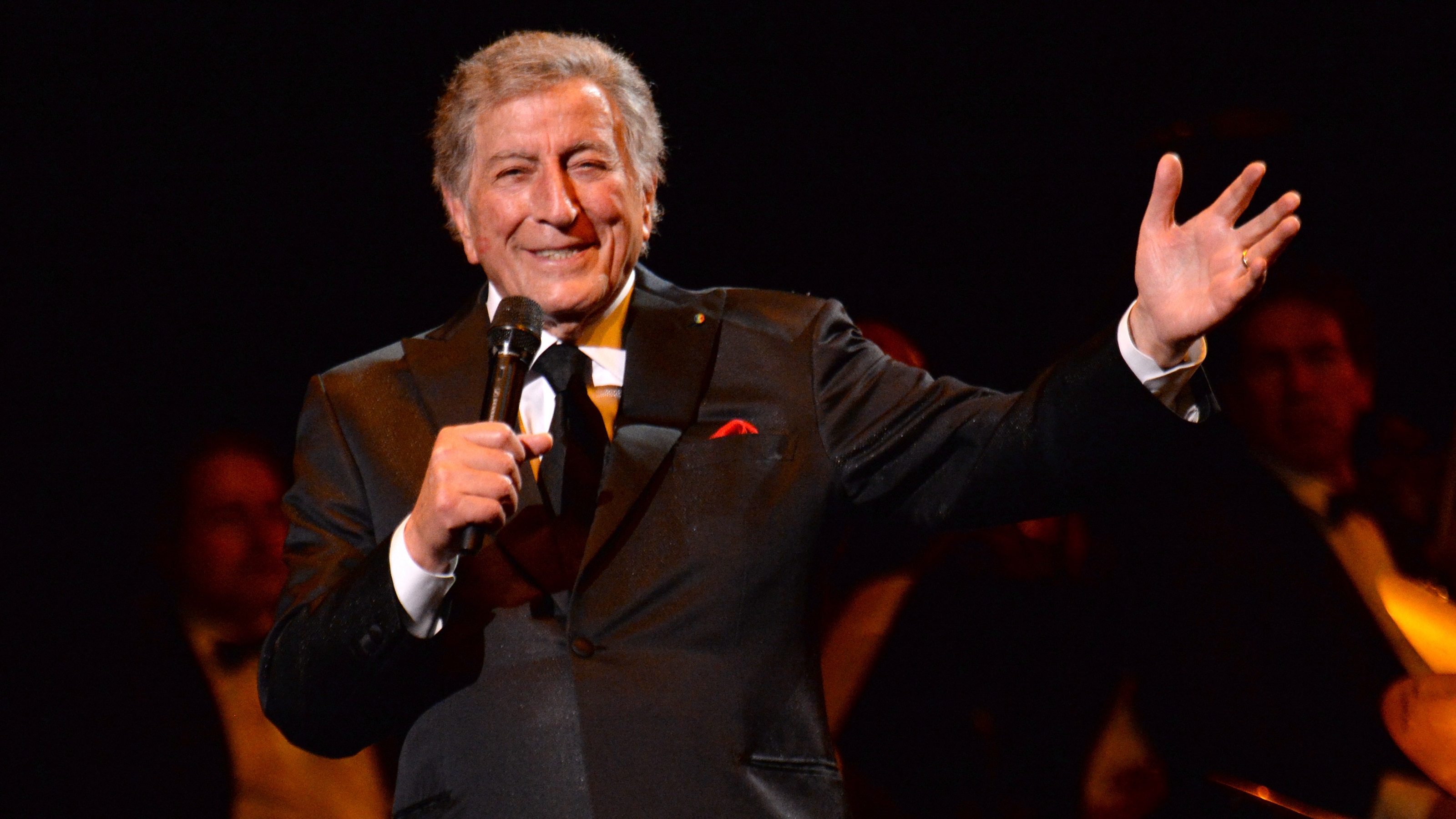What We Can Learn from Tony Bennett's Estate Dispute
Bennett's daughters are suing their brother over the family trust, which could have been avoided had Bennett done some things differently.


Profit and prosper with the best of Kiplinger's advice on investing, taxes, retirement, personal finance and much more. Delivered daily. Enter your email in the box and click Sign Me Up.
You are now subscribed
Your newsletter sign-up was successful
Want to add more newsletters?

Delivered daily
Kiplinger Today
Profit and prosper with the best of Kiplinger's advice on investing, taxes, retirement, personal finance and much more delivered daily. Smart money moves start here.

Sent five days a week
Kiplinger A Step Ahead
Get practical help to make better financial decisions in your everyday life, from spending to savings on top deals.

Delivered daily
Kiplinger Closing Bell
Get today's biggest financial and investing headlines delivered to your inbox every day the U.S. stock market is open.

Sent twice a week
Kiplinger Adviser Intel
Financial pros across the country share best practices and fresh tactics to preserve and grow your wealth.

Delivered weekly
Kiplinger Tax Tips
Trim your federal and state tax bills with practical tax-planning and tax-cutting strategies.

Sent twice a week
Kiplinger Retirement Tips
Your twice-a-week guide to planning and enjoying a financially secure and richly rewarding retirement

Sent bimonthly.
Kiplinger Adviser Angle
Insights for advisers, wealth managers and other financial professionals.

Sent twice a week
Kiplinger Investing Weekly
Your twice-a-week roundup of promising stocks, funds, companies and industries you should consider, ones you should avoid, and why.

Sent weekly for six weeks
Kiplinger Invest for Retirement
Your step-by-step six-part series on how to invest for retirement, from devising a successful strategy to exactly which investments to choose.
Tony Bennett will be forever remembered for his unique, smooth, velvet voice. He began his career in the 1950s with the beginning of rock ’n’ roll with such artists as Bill Haley & His Comets, Elvis Presley and Bobby Darin. Bennett took a different path, focused on seemingly elegant vocals along with Frank Sinatra, Bing Crosby and Nat King Cole. Sinatra once said Bennett was the best singer in the world.
Bennett was diagnosed with Alzheimer’s disease in 2016. He died in July 2023 at the age of 96. His career took off in 1951 with his first big hit, “Because of You.”
His career was introduced to a new generation of fans in 2012 by Bennett’s performances with Lady Gaga and other contemporary artists. Lady Gaga (aka Stefani Germanotta) credits Bennett with helping her to reclaim her voice when she was recovering from hip surgery and chronic pain from fibromyalgia. They did two albums together that included duets of Bennett’s hits “I’ve Got You Under My Skin” and “The Lady Is a Tramp.”
From just $107.88 $24.99 for Kiplinger Personal Finance
Become a smarter, better informed investor. Subscribe from just $107.88 $24.99, plus get up to 4 Special Issues

Sign up for Kiplinger’s Free Newsletters
Profit and prosper with the best of expert advice on investing, taxes, retirement, personal finance and more - straight to your e-mail.
Profit and prosper with the best of expert advice - straight to your e-mail.
Bennett is thought to have earned more than $100 million in his lifetime, yet his estate at the time of his death is reported to have been only $7 million. Bennett is survived by his wife, Susan Crow, and his children D’Andrea “Danny” Bennett, Daegal “Dae” Bennett, Johanna Bennett and Antonia Bennett.
Forming the family trust
Tony Bennett created a trust in 1994, naming himself and his son Danny as co-trustees. The trust was funded at least in part. (Funding refers to the process of transferring the formal ownership or title to assets to the trust.) Susan, Antonia, Danny, Dae and Johanna were all listed as beneficiaries. Danny became the sole trustee upon his father’s death in 2023.
Johanna and Antonia filed a lawsuit in June 2024. In that suit, the sisters assert that Danny did not account for and disclose all trust assets and sales or other transactions involving trust assets. They also allege that Danny improperly received personal benefit from these transactions. Even if not true, there do appear to be significant conflicts of interest and the potential for the exertion of undue influence by Danny.
Danny was not only a co-trustee, but he was also his father’s manager. Tony Bennett formed Benedetto Arts, LLC to hold certain property and assets. His children and the family trust held membership interests in the LLC. Danny was also a manager of the LLC.
Bennett’s will provided that any tangible personal property not transferred to the trust was to be distributed to his children equally. For most of us without substantial art collections, jewelry or similar collectibles, tangible personal property often has little value. However, for celebrities with “star power” such as Tony Bennett, property, pictures and assets bearing their likeness often have substantial value. In fact, the disputes over Robin Williams’ estate involved similar items of personal property.
What Danny allegedly did
In July 2022, before Tony Bennett’s death but well after his diagnosis of Alzheimer’s disease, Danny sold items of his father’s memorabilia and his name and likeness. Danny allegedly received a substantial commission on that sale through his company, RPM Productions.
Danny also allegedly sold at auction items of Tony’s personal property without appropriate disclosure and notice to Johanna and Antonia. Inherited items of personal property can often hold substantial sentimental value for children or other heirs. For example, my father was in the Navy and had glass beer mugs with a gold stripe at the rim and different Navy signed flags on the side. I first saw those when I was about 4 years old, and the mugs were not used often — with nine kids, my parents did not entertain much. Those mugs had a much greater emotional value to me than to my siblings. Johanna and Antonia may have had similar feelings about some of their father’s assets.
Danny allegedly received loans in 2020 (after Tony’s Alzheimer’s diagnosis in 2016) totaling $1.2 million. While all of Tony’s children received gifts, Danny also received a 25% commission for certain work that he performed with his father.
Everyone loses in a trust contest or related litigation. Substantial legal and professional fees are often incurred. More important, family relationships are often fractured, with little hope of ever healing.
What we can learn from this
What can we learn from Tony Bennett’s estate plan and administration to help prevent such litigation or disputes within our own families?
Lesson #1: Transparency and open communication are crucial.
Failure to communicate is almost certainly the biggest trigger causing estate and trust litigation. Once it begins, litigation can develop its own, very expensive, energy or weather pattern. The litigation can feed on itself, resulting in a substantial reduction in the value of the assets actually transferred to your children or loved ones. Each beneficiary needs to retain counsel typically. The trustee needs a lawyer to represent them as the trustee and potentially a different, independent lawyer to represent them as a beneficiary. With that many lawyers, substantial costs will be incurred.
Lesson #2: Consider a professional or corporate trustee.
With the potential size or value of the estate involved (almost certainly in excess of $7 million and up to $100 million) and the complicated nature of the transactions, a corporate or professional trustee should have been considered. The forgoing narrative or story illustrates many situations where Danny had a conflict of interest as a trustee, a manager of the LLC and as Tony’s manager.
Those concerns were substantially increased as Tony lost competency due to Alzheimer’s. Even if Tony was competent for some of the transactions, he may have been more susceptible to undue influence or coercion. The use of an independent, professional trustee would have provided substantial protection for the beneficiaries and for Danny as the trustee.
Professional trustees are typically highly trained, with significant experience and outside resources to provide the best possible guidance and assistance in achieving the family’s goals and objectives.
Related Content
- Nine Lessons to Be Learned From the Hilton Family Trust Contest
- Five Estate Planning Lessons We Can Learn From Elvis’ Mistakes
- Lessons Learned From Britney Spears’ Financial Conservatorship
- Lessons to Be Learned from Kevin Costner’s Premarital Agreement
- How to Choose Your Trustee or Executor of Your Will
Profit and prosper with the best of Kiplinger's advice on investing, taxes, retirement, personal finance and much more. Delivered daily. Enter your email in the box and click Sign Me Up.

Founder of The Goralka Law Firm, John M. Goralka assists business owners, real estate owners and successful families to achieve their enlightened dreams by better protecting their assets, minimizing income and estate tax and resolving messes and transitions to preserve, protect and enhance their legacy. John is one of few California attorneys certified as a Specialist by the State Bar of California Board of Legal Specialization in both Taxation and Estate Planning, Trust and Probate. You can read more of John's articles on the Kiplinger Advisor Collective.
-
 Ask the Tax Editor: Federal Income Tax Deductions
Ask the Tax Editor: Federal Income Tax DeductionsAsk the Editor In this week's Ask the Editor Q&A, Joy Taylor answers questions on federal income tax deductions
-
 States With No-Fault Car Insurance Laws (and How No-Fault Car Insurance Works)
States With No-Fault Car Insurance Laws (and How No-Fault Car Insurance Works)A breakdown of the confusing rules around no-fault car insurance in every state where it exists.
-
 7 Frugal Habits to Keep Even When You're Rich
7 Frugal Habits to Keep Even When You're RichSome frugal habits are worth it, no matter what tax bracket you're in.
-
 For the 2% Club, the Guardrails Approach and the 4% Rule Do Not Work: Here's What Works Instead
For the 2% Club, the Guardrails Approach and the 4% Rule Do Not Work: Here's What Works InsteadFor retirees with a pension, traditional withdrawal rules could be too restrictive. You need a tailored income plan that is much more flexible and realistic.
-
 Retiring Next Year? Now Is the Time to Start Designing What Your Retirement Will Look Like
Retiring Next Year? Now Is the Time to Start Designing What Your Retirement Will Look LikeThis is when you should be shifting your focus from growing your portfolio to designing an income and tax strategy that aligns your resources with your purpose.
-
 I'm a Financial Planner: This Layered Approach for Your Retirement Money Can Help Lower Your Stress
I'm a Financial Planner: This Layered Approach for Your Retirement Money Can Help Lower Your StressTo be confident about retirement, consider building a safety net by dividing assets into distinct layers and establishing a regular review process. Here's how.
-
 The 4 Estate Planning Documents Every High-Net-Worth Family Needs (Not Just a Will)
The 4 Estate Planning Documents Every High-Net-Worth Family Needs (Not Just a Will)The key to successful estate planning for HNW families isn't just drafting these four documents, but ensuring they're current and immediately accessible.
-
 Love and Legacy: What Couples Rarely Talk About (But Should)
Love and Legacy: What Couples Rarely Talk About (But Should)Couples who talk openly about finances, including estate planning, are more likely to head into retirement joyfully. How can you get the conversation going?
-
 How to Get the Fair Value for Your Shares When You Are in the Minority Vote on a Sale of Substantially All Corporate Assets
How to Get the Fair Value for Your Shares When You Are in the Minority Vote on a Sale of Substantially All Corporate AssetsWhen a sale of substantially all corporate assets is approved by majority vote, shareholders on the losing side of the vote should understand their rights.
-
 How to Add a Pet Trust to Your Estate Plan: Don't Leave Your Best Friend to Chance
How to Add a Pet Trust to Your Estate Plan: Don't Leave Your Best Friend to ChanceAdding a pet trust to your estate plan can ensure your pets are properly looked after when you're no longer able to care for them. This is how to go about it.
-
 Want to Avoid Leaving Chaos in Your Wake? Don't Leave Behind an Outdated Estate Plan
Want to Avoid Leaving Chaos in Your Wake? Don't Leave Behind an Outdated Estate PlanAn outdated or incomplete estate plan could cause confusion for those handling your affairs at a difficult time. This guide highlights what to update and when.